How to get your book published
The path to getting your novel or non-fiction book published can be circuitous and confusing, so here’s my step-by-step guide to how the whole process works for first-time authors.
-
Write the whole book first
Many new writers cling to the idea that they can sell a book to an agent/publisher based on a great hook or a killer opening chapter. Bad news: this rarely happens.
The exception is if you’re a non-fiction author who’s an authority on a particular subject – you’re a professor of psychology, or you have 1m Instagram followers who love your interior design aesthetic. For novelists, and many non-fiction authors, agents and publishers will want to see the whole book before they make a commitment.
-
Rewrite, edit, polish, and then polish some more
 More myth-busting: agents are not looking for a diamond in the rough. They’re looking for a gorgeous, shiny, cut diamond.
More myth-busting: agents are not looking for a diamond in the rough. They’re looking for a gorgeous, shiny, cut diamond.
Literary agents get (no joke) thousands of submissions from writers every year. They don’t have time to coax you through the editing process. This means your book needs to be as awesome as you can make it before you start approaching agents.
Commit to doing some serious self-editing of your book (I recommend checking out Self Editing for Fiction Writers and The Story Grid for help on this). Find a workshop group or critique partners. Plan to go through several drafts before you send your book off to agents.
And please, please don’t do what I did – accidentally include a typo on the first page! (Proofread, proofread, proofread.)
-
Figure out your book’s place in the market
At this point, you should know the answers to the following questions:
– What genre is the book? (for fiction) What category does the book fit into? (for non-fiction)
– What books published in the last three years would you compare it to?
This can be a tricky stage for new writers, especially if you haven’t really given much thought to either question during the writing process. Bottom line: you need to know how commercial your book is (how many potential readers there are for it).
This may require extensive research – analysing bestseller lists; paying attention to the types of books that are getting big deals; paging through similar titles on Amazon – but it’s worth it, because it will give you realistic expectations and might even cause you to change course.
Diversion: self-publishing
This guide is about traditional publishing, but at this stage, you may choose to divert and self-publish. There are some types of books, such as romance novels or niche business books, where self-publishing can be satisfying and lucrative. In other cases, you may self-publish a book and find it drops like a stone into the bottomless well of Amazon.
For more on self-publishing, I recommend checking out Joanna Penn’s books. To start you off, she has a free book called Successful Self-Publishing.
-
Write a pitch
If you were trapped in a lift with a bigwig editor and they asked what your book was about, what would you say?
If you’re anything like me, your eyes would go very round and you’d say, “uhhhh.” Luckily, we’re writers, so we get to write and rewrite our pitches at leisure.
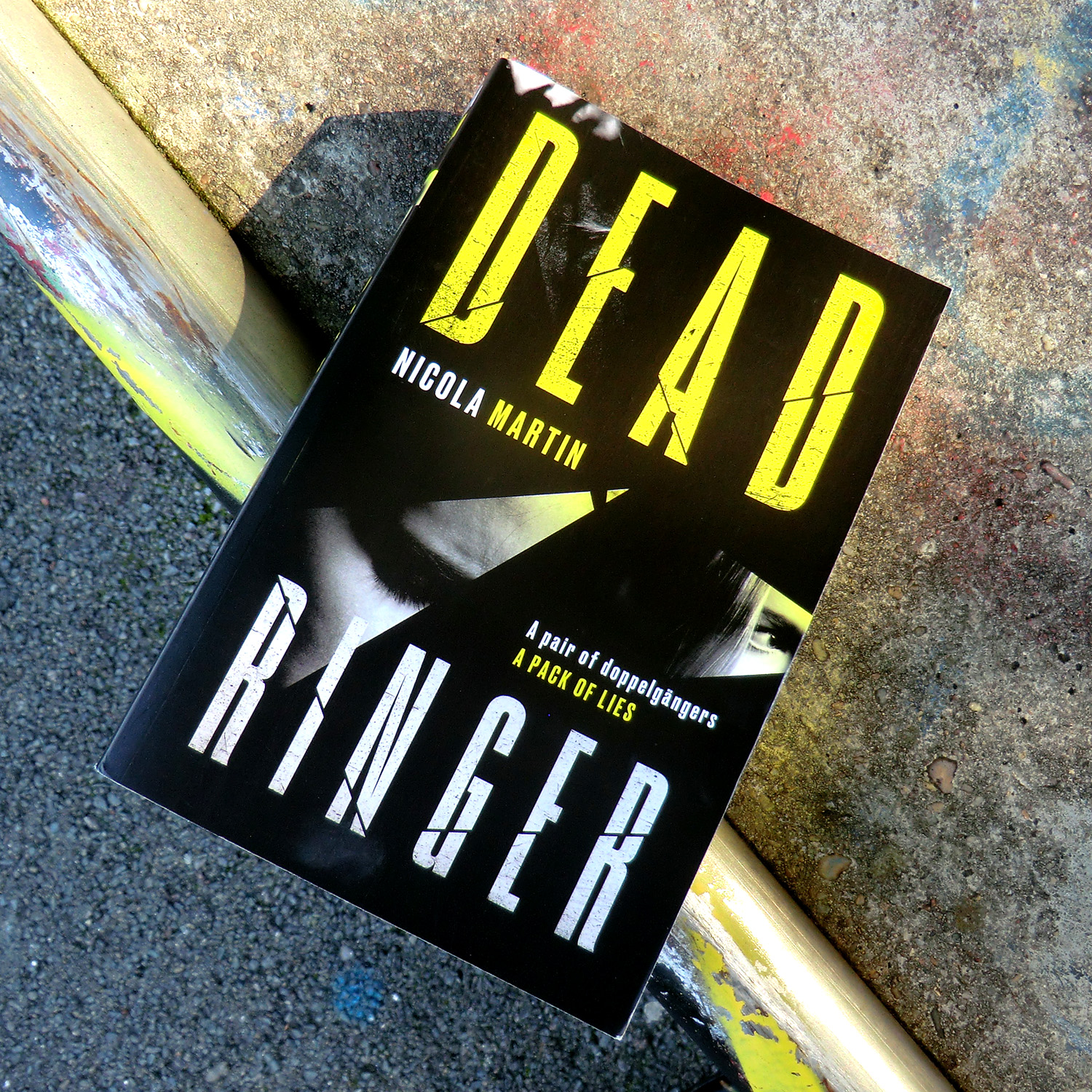 In order to approach agents, you need a hook-y description of your book. I recommend working up both an ultra-short pitch (one sentence max) and a slightly longer one (2-3 sentences).
In order to approach agents, you need a hook-y description of your book. I recommend working up both an ultra-short pitch (one sentence max) and a slightly longer one (2-3 sentences).
Your pitch should cover the genre, the premise, and the major action of the book. Common structures for a pitch are: “it’s X meets Y” (“it’s The Breakfast Club meets And Then There Were None”) or “[character] wants [A], but [B] is standing in her way.”
If in doubt, keep it simple. My ultrashort pitch for Dead Ringer was: “it’s a psychological thriller about meeting your doppelganger.”
-
Write a synopsis and cover letter
Typically one page, single-spaced, your synopsis should cover what happens in the book (for novels, yes, that includes the ending).
It should be written in simple, non-sensationalistic language. Although, you should (broadly) copy the style of your book in the synopsis (i.e. if your book is written in a chatty style, also write the synopsis in a chatty style).
Some agents ask for other material, like a chapter-by-chapter breakdown. You’ll also need a cover letter. This will include your pitch (above), all the facts about your book (genre/category, length), and a little bit about you as a writer and person (basically, why an agent/editor should take a chance on you).
For tips on writing the dreaded synopsis and cover letter, I recommend the book The Insider’s Guide to Getting Your Book Published by Rachel Stock.
Diversion: approaching small presses directly
This is, again, a point where you might choose to divert from the traditional path. Most authors choose to find an agent at this stage, because to be considered by a large publisher, you need to go through an agent. However, an agent isn’t essential if you’d prefer to be published by a smaller, independent publisher.
Some small presses welcome submissions from unknown authors. The process of pitching to them is usually similar to the process of pitching to an agent: you send in a synopsis and the first three chapters.
Personally, I would strongly advise against approaching publishers of any kind directly. If your book is good enough to garner interest from one small press, it means it’s good enough that many more publishers could be interested.
If you have an agent, they will approach ALL relevant publishers and might land you your dream book deal. Or deals, plural. Remember, you don’t just have one book to sell – you have all sorts of rights, such as audiobook rights, which your agent can sell to different publishers.
-
Research literary agencies
 (Note: This section is specific to the UK. The process of researching agents in other countries will differ.)
(Note: This section is specific to the UK. The process of researching agents in other countries will differ.)
There are hundreds of literary agents, so how do you figure out the right one for you?
Most people, at this point, mention The Writers’ and Artists’ Yearbook. This is a great tome of a book (you’ll find a copy in your local library), which lists every literary agency in the UK. The list is honestly overwhelming.
Another way to compile a list of agencies is to find out who represents your favourite authors – preferably those who write in the same genre as you. (Check their book acknowledgements or Twitter bio.) Or you could buy a subscription to The Bookseller and see who’s making deals. Or you could use a paid service like QueryTracker.
You’ll probably start out with an enormous list of agencies and agents. Do your research and start to narrow the list down, according to whether the agent is ‘actively building their list’ (code for looking for new writers) and whether they like/represent books like yours. You can get a lot of info from the agent’s web bio and Twitter profile.
You should also check whether the agent is legit by researching their history, their list of authors, and recent deals they’ve done. No reputable agent will ever ask for money up front.
(If you think this sounds like a lot of work, you’re right. Time for another cup of tea!)
-
Query agents
 The process of querying agents usually involves sending the first three chapters of your book (or the first 50 pages), a synopsis, and a cover letter.
The process of querying agents usually involves sending the first three chapters of your book (or the first 50 pages), a synopsis, and a cover letter.
Some agents do ask for something slightly different, so check their websites carefully for submission guidelines.
Personally, when I was querying, I sent out my submissions in waves. I sent emails to my top 5 agents, waited a couple of weeks, then sent emails to my next 5 favoured agents, and so on and so on.
Try not to be discouraged when you inevitably receive rejections (or deafening silences). It’s not personal. If you’ve done all the editing/polishing I suggested in step 2, it won’t even be a reflection of the quality of your book. Agents just receive SO many submissions. And some books are simply more commercial, or more personally appealing to the agent, than others.
An important note: when you get rejected, DON’T STOP QUERYING. I’ve seen talented writers give up on finding an agent after approaching 5 or 10 agents. This is a drop in the ocean. Keep going. Keep approaching agents. What have you got to lose?
-
Send over your full manuscript (when asked)
Once you’ve sent off your query email, you’ll be hoping to receive a ‘full manuscript request’ in response. This is where the agent asks you to email over your whole book and they consider whether to represent you. A nail-biting time!
When you receive a full manuscript request, it’s worth chasing (nicely) any other agents you’ve approached and not received a reply from. Re-send your pitch with a short note like: “Just to let you know, [other agent] has requested the full manuscript, so if you could take a look at my pitch within the next few days, I’d really appreciate it.” Agents want to know if your book is so hot that other agents are interested!
At this stage, several things could happen:
 – The agent who requested the full manuscript lets you know they’re not interested. (This happened to me and it was heart-breaking, because I’d got my hopes up. Lesson learned: a manuscript request is not the same as an offer of representation.)
– The agent who requested the full manuscript lets you know they’re not interested. (This happened to me and it was heart-breaking, because I’d got my hopes up. Lesson learned: a manuscript request is not the same as an offer of representation.)
– The agent advises you to ‘rewrite and resubmit’. They might suggest editorial changes, often substantial ones. Getting an ‘R&R’ isn’t an offer of representation, but it is a positive sign. It means your book is good, but not quite viable enough right now. Many writers successfully get representation by making the requested changes and re-approaching the agent. However, if the suggested changes would turn the book into something you’re not passionate about, it’s better to walk away.
– THE PHONE CALL. If the agent wants to chat to you on the phone, it’s usually a good sign. They’ll want to get a feel for you as a person, your commitment as a writer, and whether you’d be willing to work with them on editorial changes to your book. It’s the final step before…
-
Find an agent – woohoo! party time!
Following the phone call, the agent will probably arrange for an in-person meeting with you. This is a chance to figure out if the partnership will be a good fit for you both.
It can feel like the agent is the kingmaker at this stage. They’re not. They’re your new business partner and you have to feel good about working with them for years to come, so if you get a bad vibe from them, be prepared to walk away.
If it’s a good fit, the agent will give you a contract offering representation. Read it carefully. In general, it will state that the agent receives 15% of any money resulting from a publishing deal they cut for you. You can end the partnership at any point, but the agent will still earn money from the deals they arranged.
Obviously, finding an agent is VERY EXCITING and you should celebrate with cake or champagne or IDK a nice kale salad. But don’t rush into anything (having a bad agent really is worse than having no agent). Also, gird your loins, because there’s hard work ahead.
-
(Okay, party’s over…) Rewrite, edit, polish, and then polish some more
 In some rare instances, your new agent will be so impressed with your book, they will immediately send it out on submission (see step 10).
In some rare instances, your new agent will be so impressed with your book, they will immediately send it out on submission (see step 10).
Most of the time, though, your agent will ask you to make editorial changes first. Here’s some of what my agent suggested I change about my novel, which eventually became Dead Ringer:
– Change the 3rd person narration to 1st person (more typical for the genre)
– Cut out a subplot that had potential to be (needlessly) controversial and wasn’t really adding to the story
– Rewrite a few scenes that weren’t working
– Tighten up the ending
– Clean up the prose by taking out adverbs and minor repetitions
– Change the title
There’s probably more stuff I’m forgetting! Some of these changes were about making the novel flat-out better (trust me, I was a pretty schlocky writer back then). Other changes were about making it more marketable, so that it was a better fit for its genre.
I know for some writers this can be a really difficult process. Personally, I was excited that someone was enthusiastic about my book and wanted to help me make it better. However, we’re back to ‘make sure your agent is a good fit’, because you don’t want to be stuck making changes to your book that you hate, on advice from someone you don’t trust.
-
Your book goes out on submission
Once you’ve made the editorial changes and you’ve polished your book up to a high shine, your agent will send it out ‘on submission’.
This means they will pitch it to commissioning editors at relevant publishing houses. (A process not unlike your initial pitch to your agent.)
Diversion: same book, multiple submissions
A note here to say that a book might go out on multiple submissions. Dead Ringer was sent out on submission, there was some interest but no offers, so I decided to rewrite it for a new market. Then, a couple of years later, it went out on submission again and I secured a publishing deal.
If you’re taking anything away from this guide, it should be that publishing is a thorny process and the most important thing is: NEVER GIVE UP.
-
A bidding war! (Maybe)
In some cases, just one publisher will be interested in your book. In other cases, multiple publishers will want to publish it.
The latter will likely result in sealed bids: each publisher writes down how much they’re willing the pay for the book (the author’s advance) and the terms that go along with it (i.e. which rights they’re taking – ebook, audiobook, international publication rights, etc.). Usually, the book then goes to the highest bidder.
-
An excruciating wait for the contract
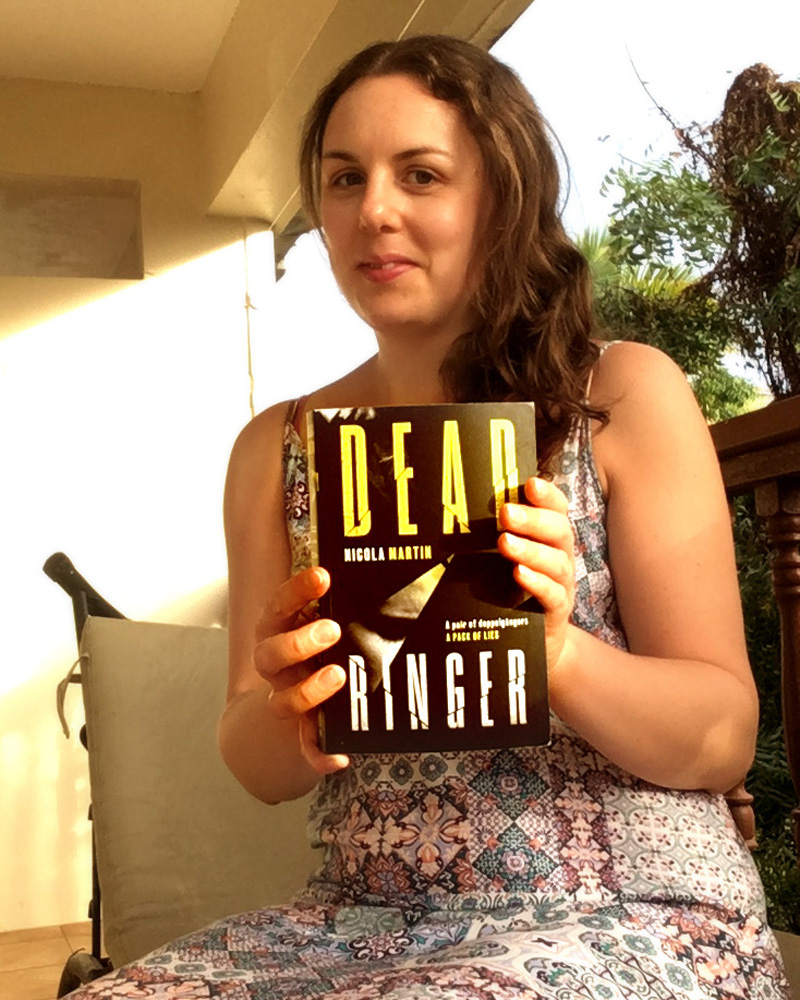 I thought I’d put this in here, because it was one of the true surprises for me about the publishing process. Who knew that a contract can take 4–6 months to appear? Not me.
I thought I’d put this in here, because it was one of the true surprises for me about the publishing process. Who knew that a contract can take 4–6 months to appear? Not me.
In fact, a lot about the publishing process moves sloooowly. Don’t sweat the inevitably-long time it takes for the contract to come through. It’s coming. Don’t worry.
Phew!
There you go. That’s how a book goes from some scribbles on a writer’s page to something a publisher actually pays for.
Then comes the hard work of more editorial changes, line edits, copyedits, plus the promotion and marketing avalanche. Until, finally, the author can stand in a bookshop and say, “Hey, there’s that book I wrote.”
Pin this post:
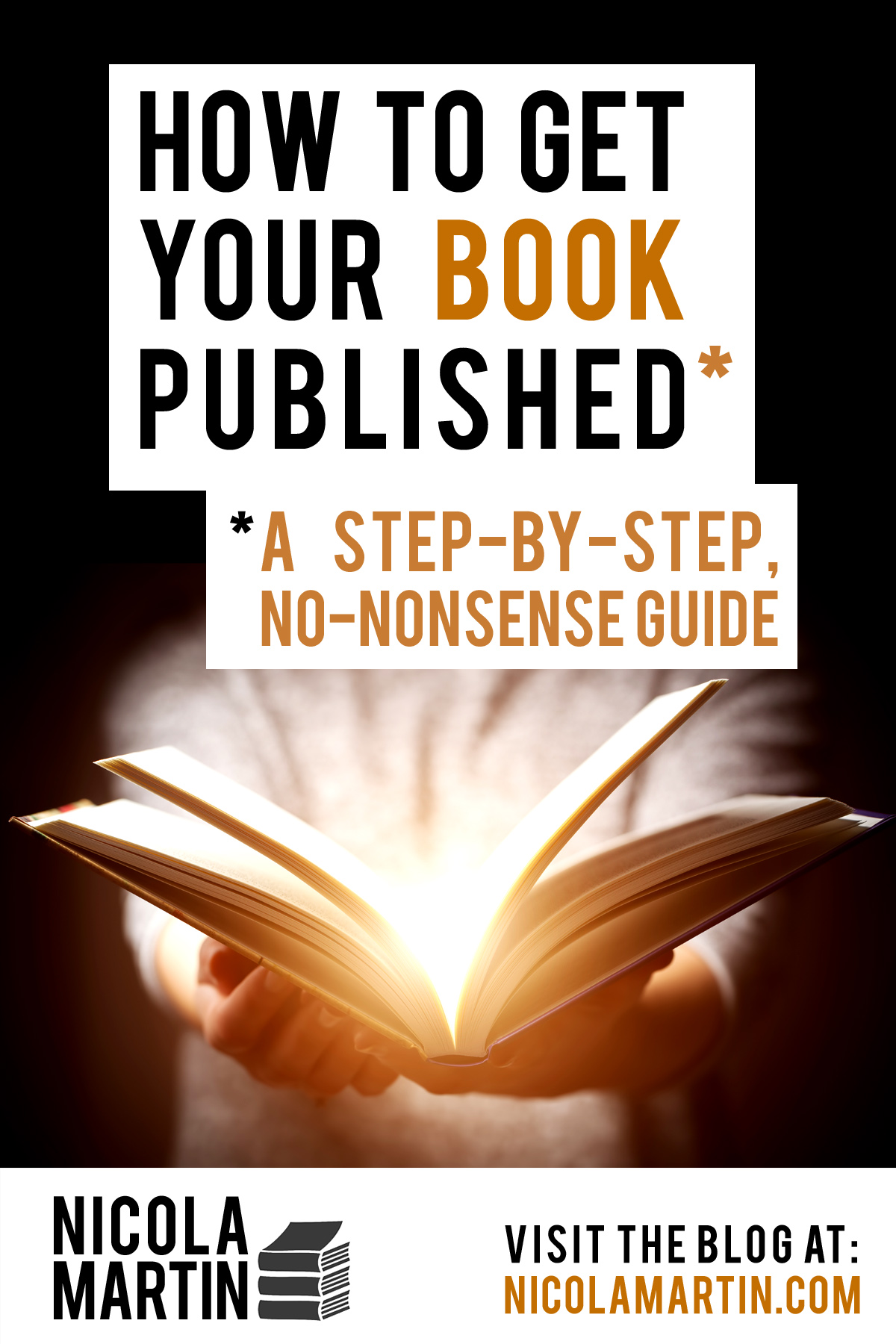
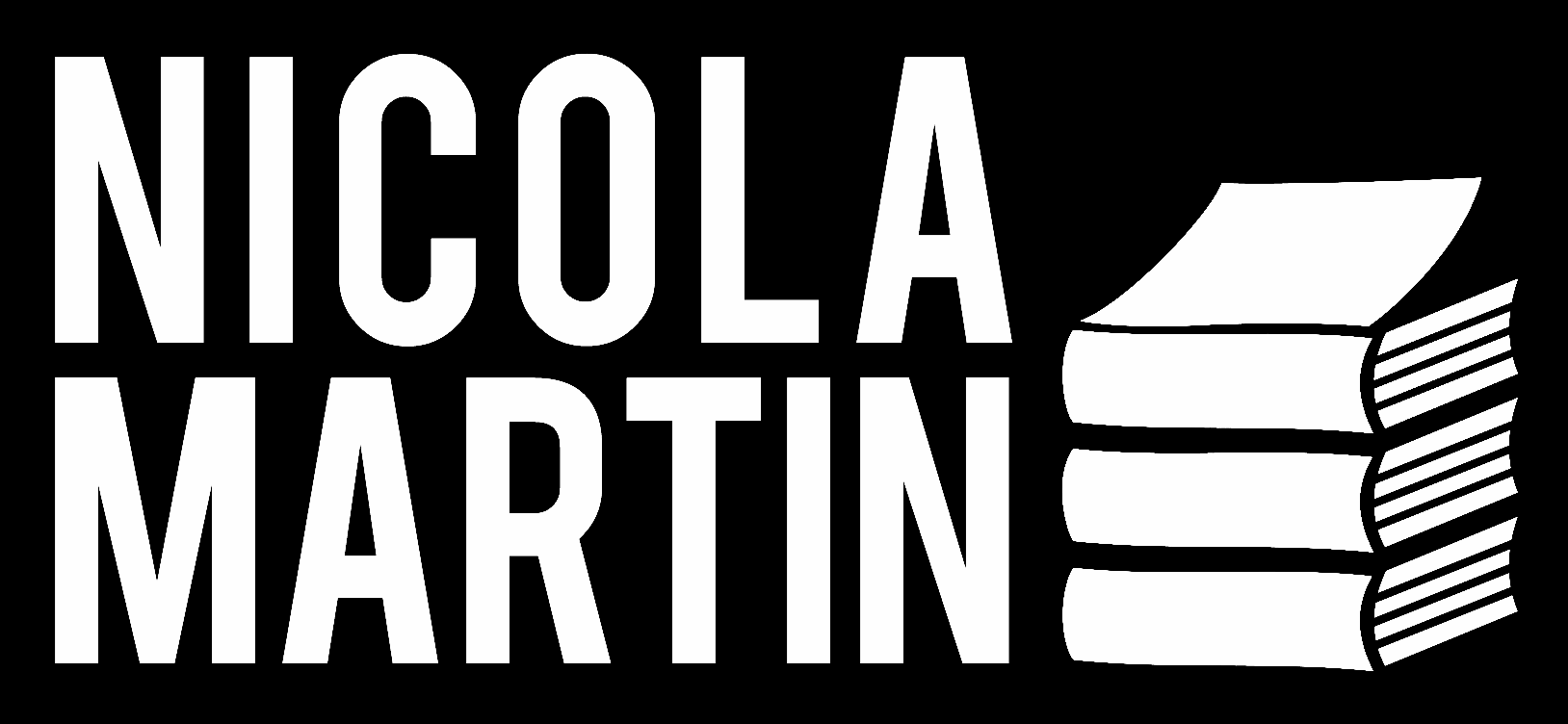





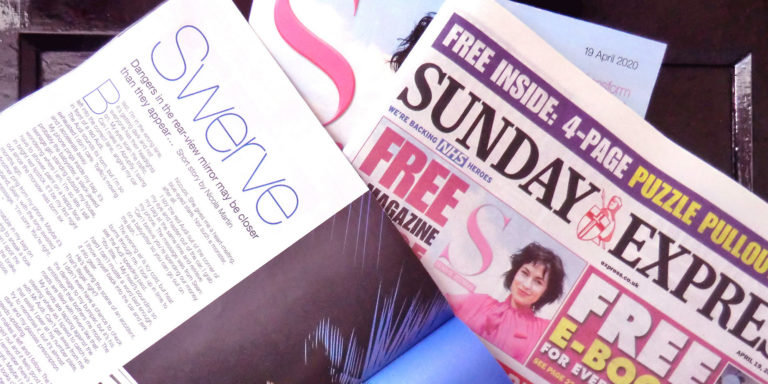

This is a really honest and enlightening piece of writing and gives a great insight into the whole process of getting published. Thank you, Nicola.
Thank you so much for your kind comment, Diane.